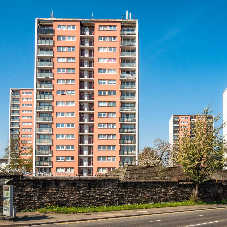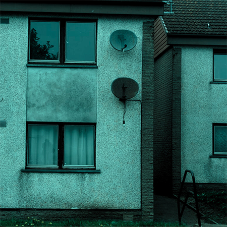The Building Safety Act 2022 (the Act) received Royal Assent on 28 April 2022. With many key aspects of the Act now in force, industry professionals are still getting to grips with the implications and ensuring their businesses and operations are compliant. This short blog takes an opportunity to look at the current state of play and what the future holds for building safety in the UK.
Earlier this year (March 2023) the Government hosted its first Building Safety Regulator (BSR) conference at Central Hall in Westminster. The event served as an opportunity to hear directly from the new Regulator (which sits within the Health & Safety Executive) about important changes that came into effect from April 2023 for full implementation in October 2023.
The main takeaway from the conference was the Building Safety Regulator would become fully operational from April 2023 and the principal accountable person (the person who is legally responsible for the structure and exterior of the building) will be required to register high-rise residential buildings from 1 April 2023. There is a six-month registration period before it becomes mandatory and a criminal offence for a high-risk building to not be registered with the BSR (April 2024). Further detail on the registration process can be found here.
Building control professionals and private building control organisations will also have to register with the BSR and registration will open in October 2023. They will have six months before it becomes mandatory (April 2024).
The other important change is the ‘golden thread’ of information. Dame Judith Hackitt, in her report, Building a Safer Future, recommended the introduction of a golden thread to support dutyholders in designing, constructing and managing their buildings as holistic systems, taking into account building safety at all stages in the lifecycle.
The purpose of the golden thread is to ensure all relevant parties have accurate information to understand a building and the steps needed to keep both the building and people safe, now and in the future. Further guidance on storing a building’s information can be found here.
Industry preparedness for the golden thread is still largely unknown. Back in December 2020, the Chartered Institute of Building (CIOB) partnered with i3PT Certification to publish the findings of an in-depth survey that examined the UK built environment’s ability to deliver a digital golden thread of information. It found that most respondents were confident in their own understanding of the golden thread, however less than half believe that the appropriate people in their organisation share the same level of understanding. While much information about the principle of the golden thread and the documentation to be stored by dutyholders has been released, the BSR Conference and the questions asked by attendees highlighted that the industry still has a long way to go to get to grips with this complex legislation.
But it is not just the industry that might not be ready and there are concerns around the timetable to get the necessary secondary legislation through parliament, whether the BSR has the capacity to enforce the Act as well as wider issues around the shortage of building control inspectors to carry out the new functions. The shortage issue is seen as such a problem that the Government announced plans in March 2023 to spend £42m on recruiting more than 200 building inspectors and fire-protection officers to support its new high-rise building safety regime.
The industry is also still waiting for a new permanent appointment following the retirement of Peter Baker, who was the Chief Inspector of Buildings at the BSR in May2023.
As secondary legislation continues to be laid out by the Government, the CIOB has encouraged members and wider industry to understand the implications of the Act, regardless of if they are working on higher-risk buildings. Government has alluded to the fact the building safety regime will continue to evolve over the coming years, and it is likely that many of the new regulations will come into force on other types of buildings. Our advice and guidance page can be read here.
By David Barnes, Policy & Public Affairs Manager at the Chartered Institute of Building (CIOB)
Related Blog Articles



crop192.png)












